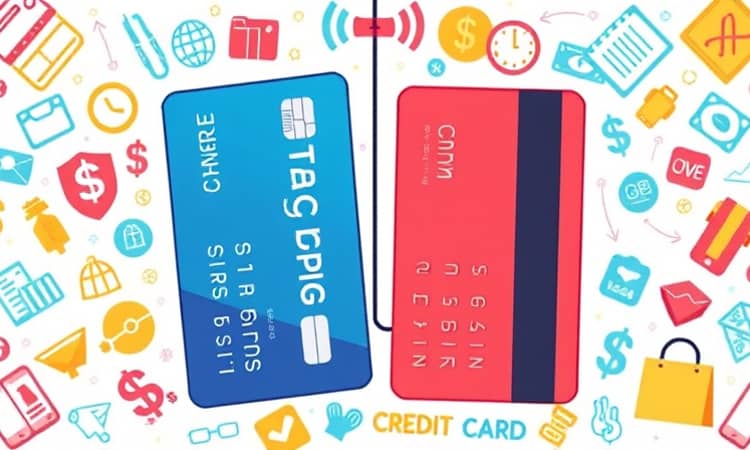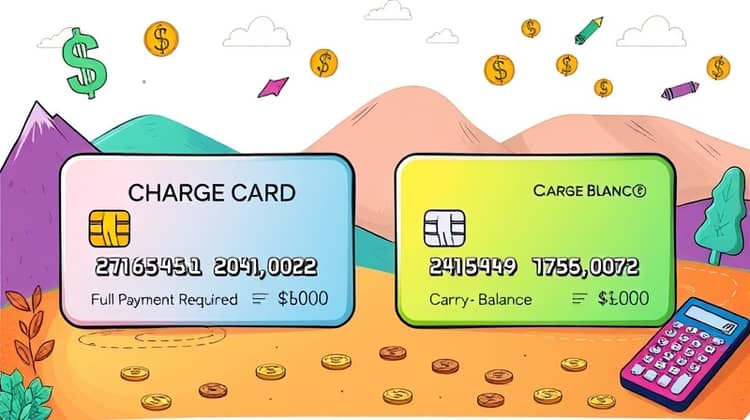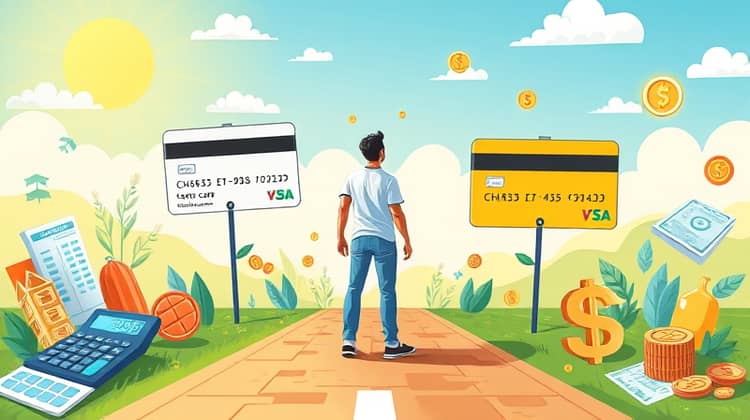Charge Cards vs Credit Cards: Key Differences You Need to Know

In the world of personal finance, understanding the various types of credit vehicles available is essential to making informed financial decisions. Among these options, charge cards and credit cards stand out as popular choices for consumers, but they operate on different principles.
This article will delve into charge cards versus credit cards, exploring their unique features, advantages, drawbacks, and key differences. By the end, you will have the insight necessary to determine which option aligns better with your financial lifestyle.
So, let's begin by understanding what a charge card is and how it differentiates itself from a traditional credit card.
What is a Charge Card?

Charge cards are a type of payment card that requires the cardholder to pay the full balance of their purchases at the end of each billing cycle. Unlike credit cards, charge cards do not allow users to carry a balance and incur interest charges. This can be a beneficial feature for those who prioritize budgeting and want to avoid debt accumulation.
Charge cards are especially popular among frequent travelers and business professionals due to their various perks, including travel rewards, concierge services, and access to exclusive events. However, they typically come with annual fees and may require a stronger credit history for approval.
- Requires full payment every month
- No credit limit, but spending limits apply based on usage and payment history
- Often offers rewards and perks like travel benefits and cashback
- Usually has higher annual fees than credit cards
- May cater to specific demographics, like business owners or affluent consumers
It's crucial for potential users to weigh the features of charge cards against their spending habits and financial goals. Now let's take a closer look at credit cards to see how they compare.
What is a Credit Card?

Credit cards are issued by banks and financial institutions allowing cardholders to borrow money up to a predefined limit to make purchases. This borrowed amount can be paid back over time in installments, which may include interest depending on the remaining balance at the end of the billing cycle.
They offer greater flexibility than charge cards, as users can carry a balance and only pay the minimum payment each month. This structure, however, can lead to debt if not managed wisely, and it's one of the primary concerns for new credit card users.
- Allows carrying a balance with interest charges
- Includes minimum monthly payment requirements
- Often features cashback, travel benefits, and purchase protection
- Available to a wider demographic compared to charge cards
- May have promotional offers like 0% APR for an initial period
Understanding the foundations of credit cards is vital before we explore the distinctions that set charge cards apart. Now let's explore the key differences between these two types of cards.
Key Differences Between Charge Cards and Credit Cards

The fundamental differences between charge cards and credit cards revolve around payment structures and financial flexibility. Charge cards require full payment every month, whereas credit cards allow users to carry a balance.
Users' financial management styles can significantly benefit from understanding these differences, helping them to choose the right card that complements their spending habits.
- Charge cards require full payment, credit cards allow a balance to be carried
- Charge cards usually have no preset spending limit, while credit cards do
- Charge cards often come with higher annual fees compared to credit cards
- Credit cards may offer lower interest rates for balances, which charge cards do not
Identifying these differences is essential, but it's equally important to consider the pros and cons of each option. Let's first look at charge cards.
Pros and Cons of Charge Cards

Charge cards offer various advantages that make them appealing to specific users, primarily those who are disciplined in their financial habits. They encourage users to avoid debt since full payments are necessary at the end of each billing cycle. Additionally, charge cards often come with unique perks, such as travel rewards and higher spending limits based on usage.
However, the inability to carry a balance can pose limitations. Users who face unexpected expenses or cash flow issues may find themselves in a challenging position if they're forced to pay their balance in full.
- Encourages responsible spending and budgeting
- Typically offers premium perks and rewards
- Higher spending power with no preset limits
In conclusion, charge cards are ideal for those who can handle their finances carefully and want to enjoy exclusive benefits. Yet, there are also some drawbacks that potential users should consider. Now, let's shift our focus to credit cards.
Pros and Cons of Credit Cards

Credit cards provide a variety of advantages, including flexibility in payments and an extensive range of rewards. They can be useful for building credit history and offer protection for fraudulent transactions, making them a popular choice for consumers.
Nonetheless, credit cards also come with significant risks. Since they allow users to carry balances, they can lead to overspending and accruing high-interest debt if not managed effectively. Additionally, some credit cards may have opaque fee structures or unfavorable interest rates, which can catch users off guard. Overall, users should approach credit cards with caution.
- Increased financial flexibility with payment options
- Ability to earn rewards through spending
- Helps build credit score when managed properly
With the pros and cons of both charge cards and credit cards in mind, the next step is to consider which option best serves your financial needs.
Which One Should You Choose?

Choosing between a charge card and a credit card hinges on your individual financial style and spending habits. If you prefer to live debt-free and can afford to make full payments each month, a charge card may be the right fit for you.
Conversely, if you appreciate having flexibility and like to take advantage of credit card rewards, then a credit card might be the better choice. It's essential to evaluate your personal preferences and financial capabilities before making a decision.
Conclusion

In summary, understanding the differences between charge cards and credit cards is crucial for consumers looking to optimize their financial practices. Charge cards promote responsible spending by requiring full payment each month, while credit cards offer greater flexibility but come with the risk of debt if not managed carefully.
As such, it's vital to assess your financial habits and determine which features best align with your lifestyle and goals. By making an informed choice between a charge card and a credit card, you can leverage their benefits to enhance your financial well-being.
Whether you opt for a charge card or a credit card, always remember to make informed financial decisions and avoid overspending, creating a path towards financial stability.






